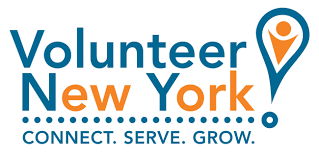Customers and prospects are generally skeptical and trust your marketing, public relations and sales efforts as much as they would trust Bernie Madoff. The Great Recession has conditioned us to be cautious, and with good reason. In the words of Theodore Roosevelt, “People don”™t care how much you know until they know how much you care.”
The most powerful way to overcome skepticism is positive word-of-mouth that is gained by others knowing that you care. Build positive word-of-mouth by doing your homework. Know what the people in your marketplace do for a living, the special interests they share and the recreational activities they enjoy.
The next step is to align yourself and build a network of “centers of influence” within your carefully researched market by letting them know that you are aware of their wants and needs and have the best solutions to meet them. Both on and offline, effective centers of influence are highly respected people involved in professional, industry and community organizations common to your market.
They lead the decision-making process in your marketplace and must become passionate advocates and members of your team. In the business book “Unusually Excellent,” author John Hamm reminds us of the truth, “Your biggest test as a leader is to motivate each member of your team to become fully engaged in the success of your project. That can only occur if you are engaged with them in their success.”
So how can you engage and help “centers” be successful? By simply re-examining the information you”™ve already gathered in order to know the people in your marketplace: You already know what your “centers of influence” do for a living, the special interests they share and the recreational activities they enjoy.
Begin by asking them what blogs or social media they follow, groups they are part of and clubs they belong to. Then participate in them in order to gaining visibility. Where do they socialize? Be there! What publications do they read? Subscribe and write articles! Where and when are their industry or professional conferences? Attend them!
Offer your time without strings attached. A “what”™s in it for me” attitude leaves a bad impression. Help your “centers” with their charity-sponsored projects. By serving on a committee or buying tickets to an event, you communicate that you are interested in helping with what”™s important to them.
Go from visibility to high visibility by providing thoughtful and very helpful information in the social media forums they enjoy and serving on high visibility committees that do important and challenging work benefiting their interest. This way, you avoid getting lost in the crowd and have the opportunity to demonstrate your leadership, people, and organizational skills.
Service shows you are worthy of trust and confidence and will give you tremendous access to good prospects. Be patient and always add value. Hamm, an internationally known consultant on leadership strategy who is regularly published in Business 2.0, Business Week, Fortune, USA Today and The Wall Street Journal reminds us that “Leaders must go first.”
Millions of people are eagerly waiting to buy from you if you can convince them that you are trustworthy. To gain their trust they must know you care. Unlike your competitors who invest their time in marketing, public relations and sales efforts, invest your resources and show that you”™re interested in what they want.
Questions for discussion:
- Do we know our centers well enough to show them that we care?
- What can we do to build even higher levels of trust with our customers?
Joe Murtagh is The DreamSpeaker, an international keynote speaker, meeting facilitator and business trainer. For questions or comments, contact Joe@TheDreamSpeaker.com, TheDreamSpeaker.com or call (800) 239-0058.
















